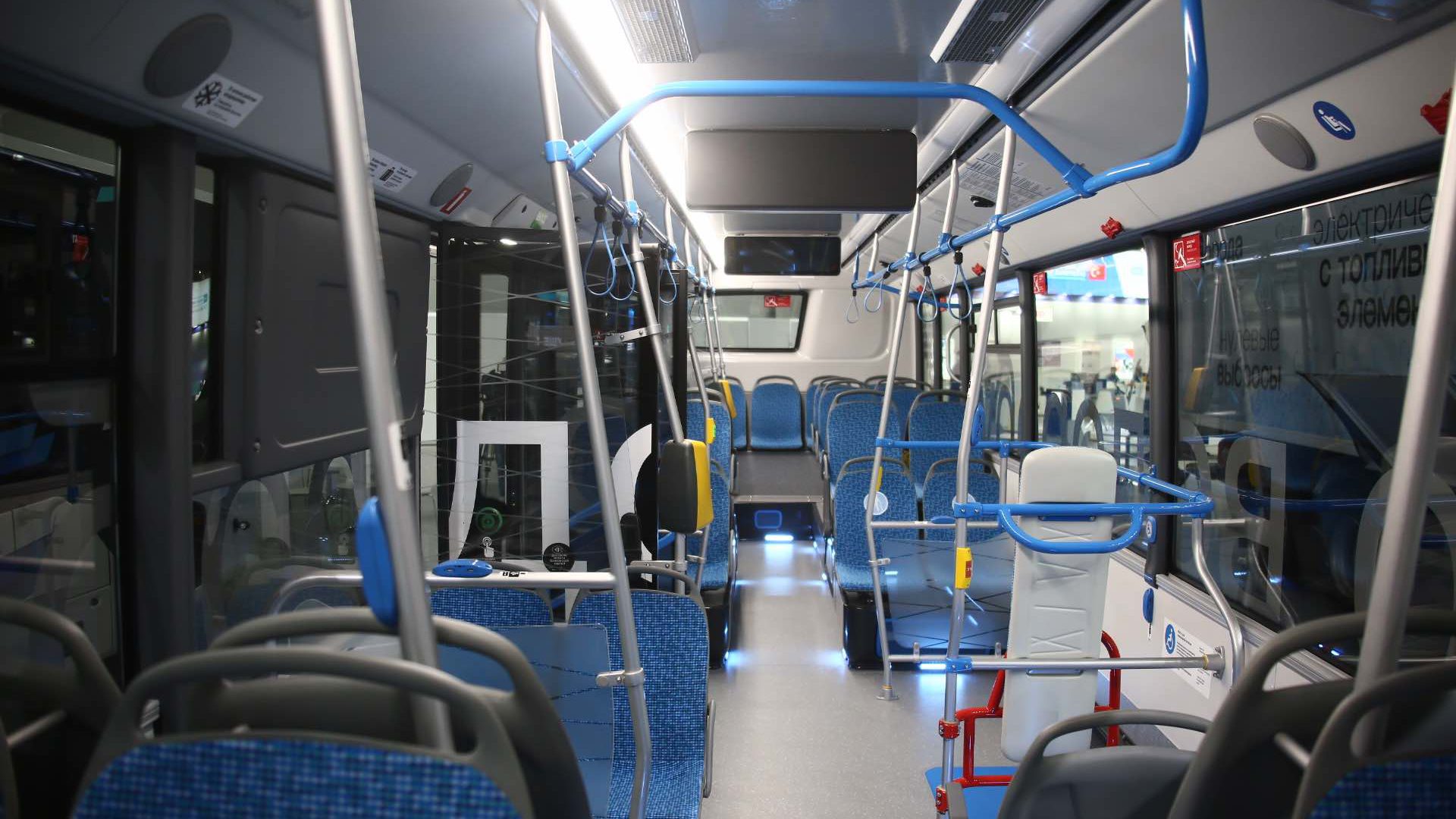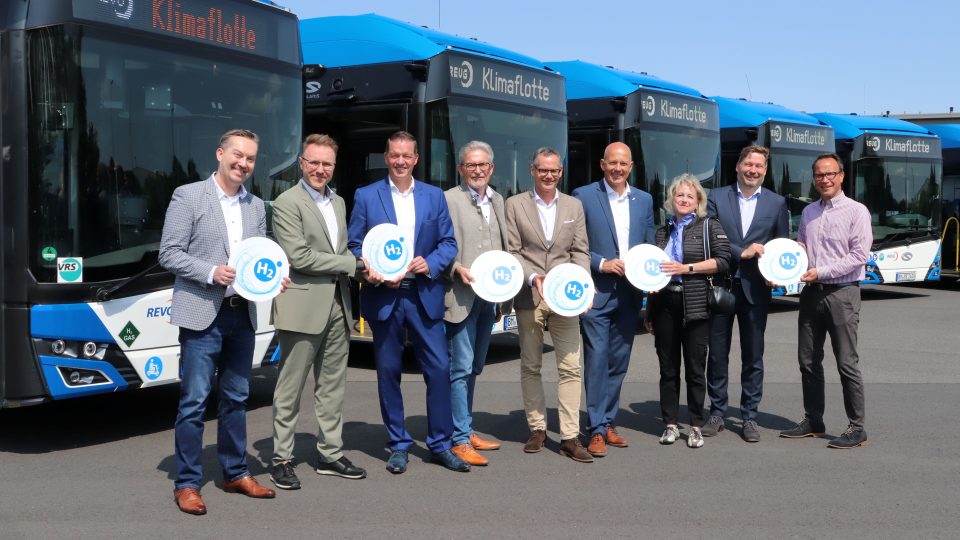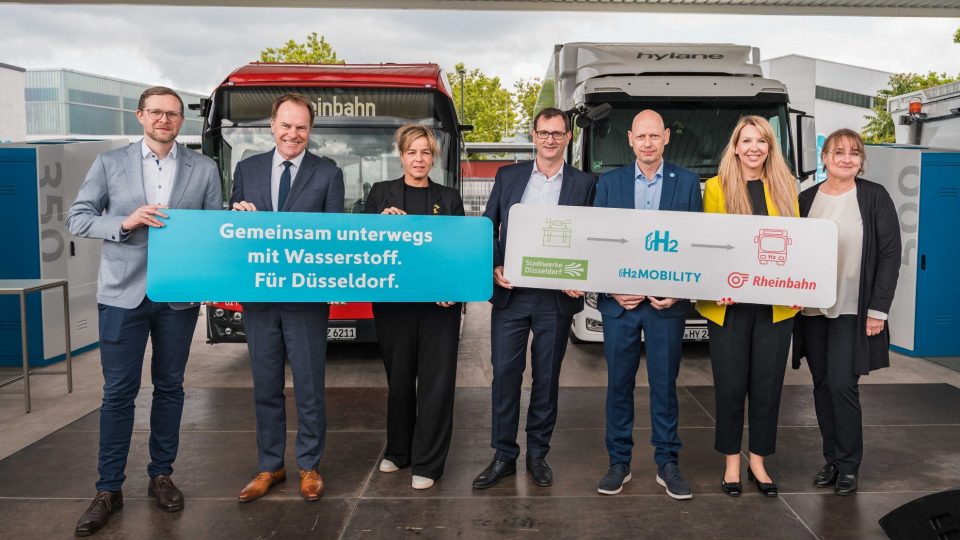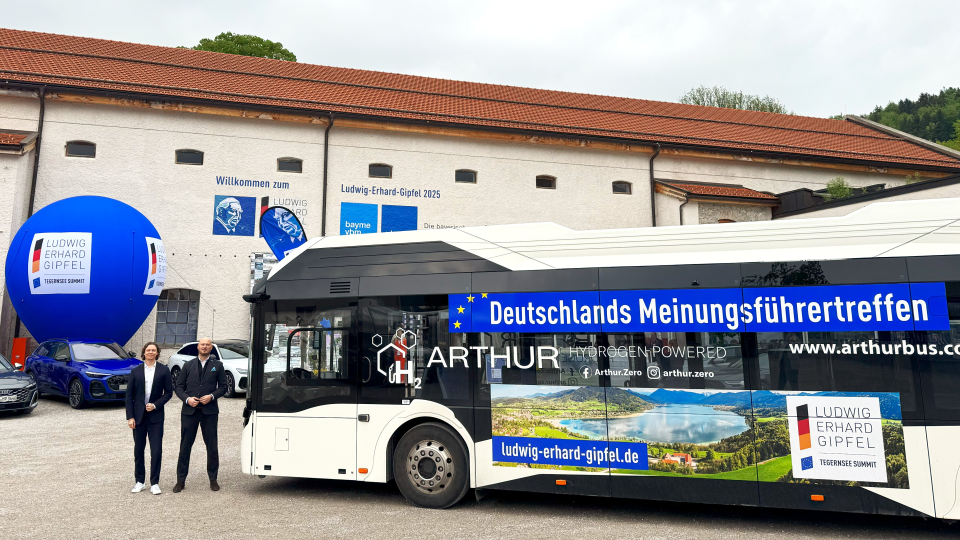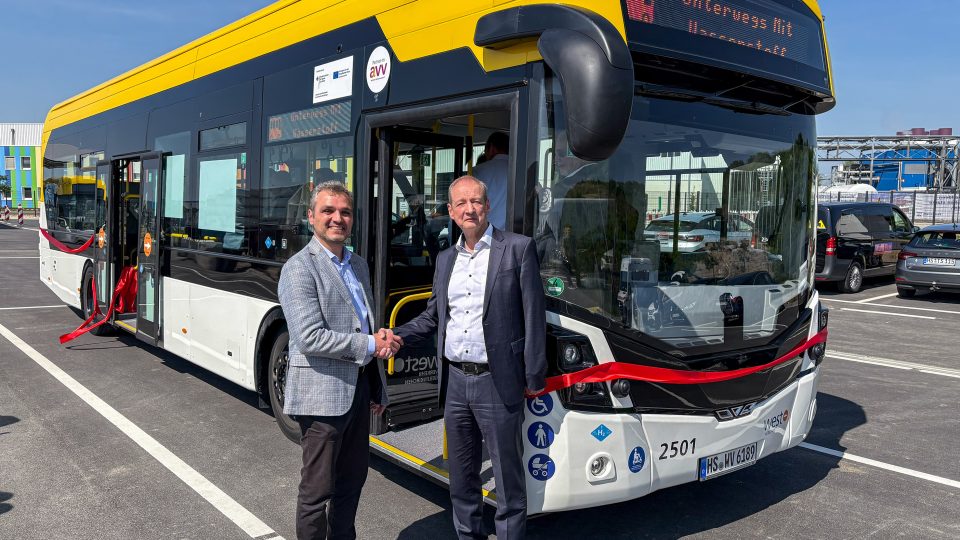Kamaz-6290 fuel cell bus unveiled in Moscow. Pilot scheduled in 2022
Kamaz has presented the hydrogen fuel cell bus 6290 at the COMTRANS-2021 international exhibition in Moscow. Sergey Chemezov, CEO of Rostec (the state corporation that owns Kamaz) outline this is the next step in the search for alternative energy sources and in the development of modern environmentally friendly passenger transport. Kamaz-6290 fuel cell bus unveiled […]
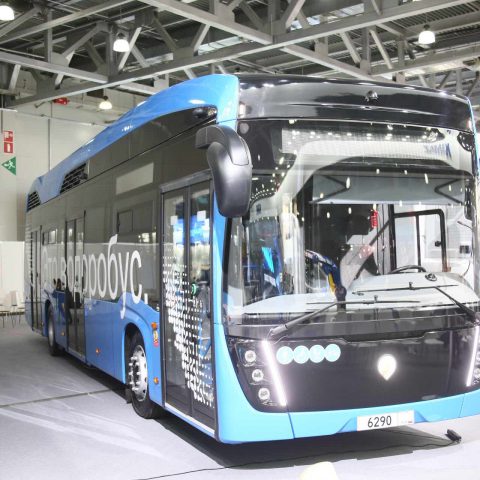
Kamaz has presented the hydrogen fuel cell bus 6290 at the COMTRANS-2021 international exhibition in Moscow. Sergey Chemezov, CEO of Rostec (the state corporation that owns Kamaz) outline this is the next step in the search for alternative energy sources and in the development of modern environmentally friendly passenger transport.
Kamaz-6290 fuel cell bus unveiled
Bus chassis and body were assembled at NEFAZ, a company’s subsidiary in Bashkiria. Roof equipment was installed in the research and technology center of Kamaz, Rostec points out in a press note. The body is made of high-strength steel and safe plastic, supporting the required durability and safety in emergencies. The dimensions of Kamaz-6282 are 12.4х2.55х3.4 m.
This innovative product is hydrogen fuel cells-powered and is fitted with six cylinders for compressed hydrogen storage. Cylinders are roof-mounted for safety purposes. «Unlike the electric bus with the endurance of 70 km after complete battery recharge, the hydrogen fuel cell bus can travel up to 250 km, which makes it applicable even for interurban traffic», the company says.
The bus features ZF axles (on the rear there is the AxTrax) is equipped with the modern high-performance pneumatic braking system with EBS, ABS, ASR, and EPB, slope stop function, motion interlocking function for open doors, and a monitoring sensor for wear and tear of brake pads. Total passenger capacity is 80, with 33 seats.
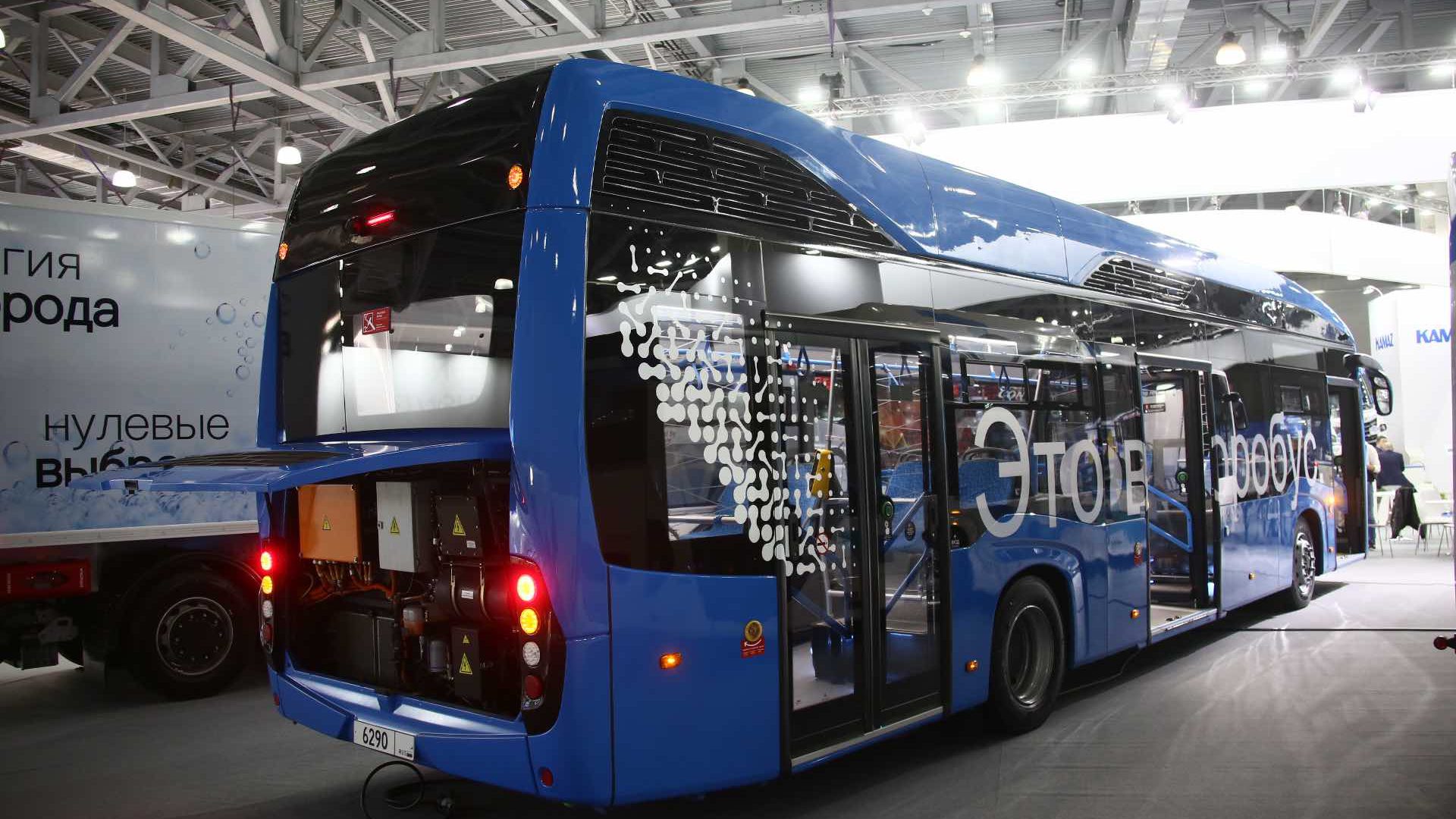
Kamaz bets on hydrogen in the bus field
A two-zone climatic control system is provided in the compartment, including a separate one for the driver’s cabin. A mechanical ramp is mounted for unobstructed driving of low-mobile citizens into the compartment. Doors can be activated by the passengers themselves. The bus has an electronic passenger address system that can produce an output through destination signs and a display board in the compartment.
“The world is moving forward and we cannot lag behind. The hydrogen bus, or the hydrogen electric bus, is the next step in the search for alternative energy sources and in the development of modern environmentally friendly passenger transport. When it was created, the Kamaz-6282 electric bus was taken as a basis. For three years of use in Moscow, this bus has proven itself well – comfortable, noiselessness with high environmental performance, ” CEO of the State Corporation Rostec, Sergey Chemezov said.
“I think the future belongs to hydrogen fuel. I had a chance to test the Aurus on hydrogen fuel – the driving experience is completely different. The car goes absolutely silently, ” Chemezov concluded.
“There is still a lot of work to be done. In 2022, we intend to test a prototype Kamaz hydrogen fuel cell bus in the streets of Moscow, in the environment of actual operation. In case the relevant refueling infrastructure is set up and there is a demand for the new kind of eco-transport on the part of Moscow, we plan to provide for final assembly of hydrogen fuel cell buses at the Sokolniki Car Repair and Construction Plant in the capital of the country, where Kamaz electric buses are already assembled successfully,” Chief Automobile Designer Andrei Savinkov says.
